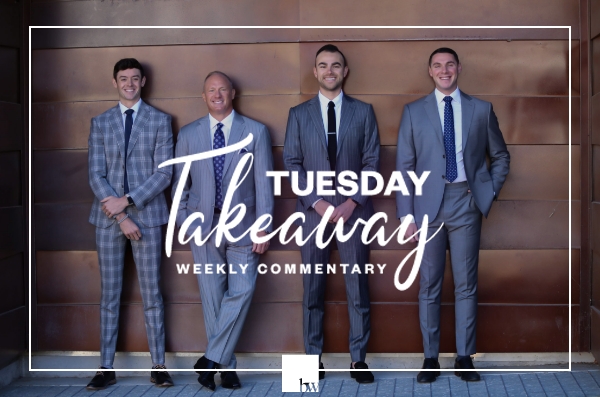
Market Insights:
January 2, 2024
Posted on January 02, 2024
Planning and Guidance, Tailored To Your Life and Goals
Tuesday Takeaway
Posted on December 09, 2014
The Markets In the United States, it was more of the same ole, same ole… The Dow Jones Industrial Average and Standard & Poor’s 500 closed at record highs for the 34th time and 49th time this year, respectively. The impetus last week was a jobs report that far exceeded expectations. For the 10th consecutive month, more than 200,000 jobs have been created. That’s the longest string of improvements since 1994, according to Reuters. Not only did U.S. employers hire the most new workers in three years, wages ticked higher, too. An expert cited by Barron’s said the underlying report data was promising:
“The average workweek was 34.6 hours, up from 34.5, and where it was before the 2008 crisis. That level acts as an effective ceiling to additional hours and suggests employers will have to increase hiring, he says – hence the pop in bond yields. The 10-year U.S. Treasury bond yield jumped to 2.31 percent from 2.26 percent on Friday. (Bond prices move inversely to yields.)”
Analysts told CNBC.com the strong jobs report might mean the Federal Reserve will begin to raise the Fed funds rates by mid-2015. The Stoxx Europe Index closed at a relatively high level, even though things weren’t so rosy economically in the Eurozone. Inflation continued to fall and is now close to zero. The last time inflation was at 2 percent, which is the level targeted by the European Central Bank (ECB), was two years ago, according to The New York Times. The ECB continues to talk a big game without taking any action, according to Barron’s. Last week, President Mario Draghi said the ECB plans to assess the success of its current stimulus programs as well as the effects of lower energy prices early in 2015. However, he offered no specific monetary easing measures or a timeline for action. It was the same message he delivered in October and November of 2014. Experts cited by The New York Times indicated the ECB could lose credibility if it fails to act early next year.
 ]]>
]]>